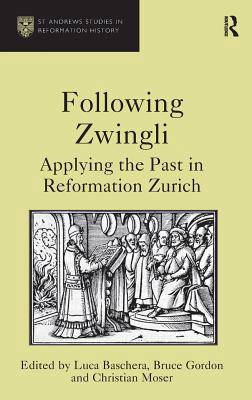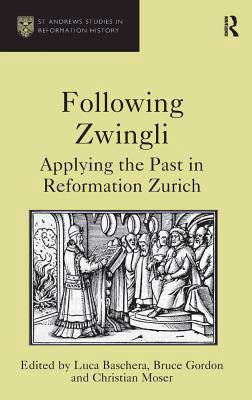
- Afhalen na 1 uur in een winkel met voorraad
- Gratis thuislevering in België vanaf € 30
- Ruim aanbod met 7 miljoen producten
- Afhalen na 1 uur in een winkel met voorraad
- Gratis thuislevering in België vanaf € 30
- Ruim aanbod met 7 miljoen producten
Zoeken
€ 320,95
+ 641 punten
Omschrijving
Following Zwingli explores history, scholarship, and memory in Reformation Zurich. The humanist culture of this city was shaped by a remarkable sodality of scholars, many of whom had been associated with Erasmus. In creating a new Christian order, Zwingli and his colleagues sought biblical, historical, literary, and political models to shape and defend their radical reforms. After Zwingli's sudden death, the next generation was committed to the institutional and intellectual establishment of the Reformation through ongoing dialogue with the past. The essays of this volume examine the immediacy of antiquity, early Christianity, and the Middle Ages for the Zurich reformers. Their reading and appropriation of history was no mere rhetorical exercise or polemical defence. The Bible, theology, church institutions, pedagogy, and humanist scholarship were the lifeblood of the Reformation. But their appropriation depended on the interplay of past ideals with the pressing demands of a sixteenth-century reform movement troubled by internal dissention and constantly under attack. This book focuses on Zwingli's successors and on their interpretations of the recent and distant past: the choices they made, and why. How those pasts spoke to the present and how they were heard tell us a great deal not only about the distinctive nature of Zurich and Zwinglianism, but also about locality, history, and religious change in the European Reformation.
Specificaties
Betrokkenen
- Auteur(s):
- Uitgeverij:
Inhoud
- Aantal bladzijden:
- 320
- Taal:
- Engels
- Reeks:
Eigenschappen
- Productcode (EAN):
- 9780754667964
- Verschijningsdatum:
- 14/05/2014
- Uitvoering:
- Hardcover
- Formaat:
- Genaaid
- Afmetingen:
- 156 mm x 234 mm
- Gewicht:
- 625 g

Alleen bij Standaard Boekhandel
+ 641 punten op je klantenkaart van Standaard Boekhandel
Beoordelingen
We publiceren alleen reviews die voldoen aan de voorwaarden voor reviews. Bekijk onze voorwaarden voor reviews.








